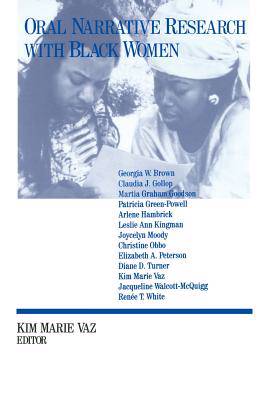
- Afhalen na 1 uur in een winkel met voorraad
- Gratis thuislevering in België vanaf € 30
- Ruim aanbod met 7 miljoen producten
- Afhalen na 1 uur in een winkel met voorraad
- Gratis thuislevering in België vanaf € 30
- Ruim aanbod met 7 miljoen producten
Zoeken
€ 238,45
+ 476 punten
Uitvoering
Omschrijving
This book consists of essays on methodological issues by Africana (African and African American) women scholars who have successfully employed oral narrative methods in their research. Some themes covered in these essays are the strengths of oral narrative research for expanding and transforming knowledge about black women and how these scholars learned to conduct oral narrative research; descriptions of the types of narratives they have gathered, the difficulties they have encountered and how these were overcome; and the ethical dilemmas faced while undertaking their research endeavors. What makes this book a valuable teaching tool are the pedagogical suggestions and research artifacts contained within. Contributors have described one or two activities that may assist instructorÆs efforts to teach oral narrative methodologies. Methodological essays about the phenomenological and empirical aspects of carrying out oral narrative research from an Afrafeminist/womanist standpoint are rare and book-length works are almost nonexistent. Oral Narrative Research with black women participates in the growing movement of Afrafeminist/womanist scholarship that fills this void. This is an insightful, thought-provoking resource for researchers, students, and scholars interested in conducting qualitative research or who want to include black women in their research.
Specificaties
Betrokkenen
- Auteur(s):
- Uitgeverij:
Inhoud
- Aantal bladzijden:
- 272
- Taal:
- Engels
Eigenschappen
- Productcode (EAN):
- 9780803974296
- Verschijningsdatum:
- 10/06/1997
- Uitvoering:
- Paperback
- Formaat:
- Trade paperback (VS)
- Afmetingen:
- 153 mm x 231 mm
- Gewicht:
- 408 g

Alleen bij Standaard Boekhandel
+ 476 punten op je klantenkaart van Standaard Boekhandel
Beoordelingen
We publiceren alleen reviews die voldoen aan de voorwaarden voor reviews. Bekijk onze voorwaarden voor reviews.








